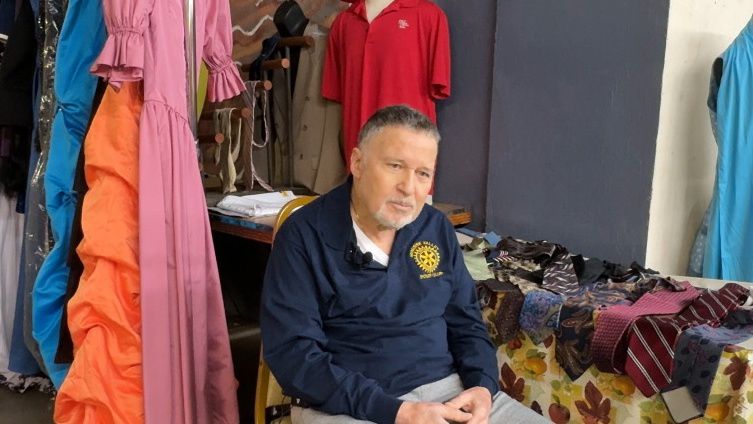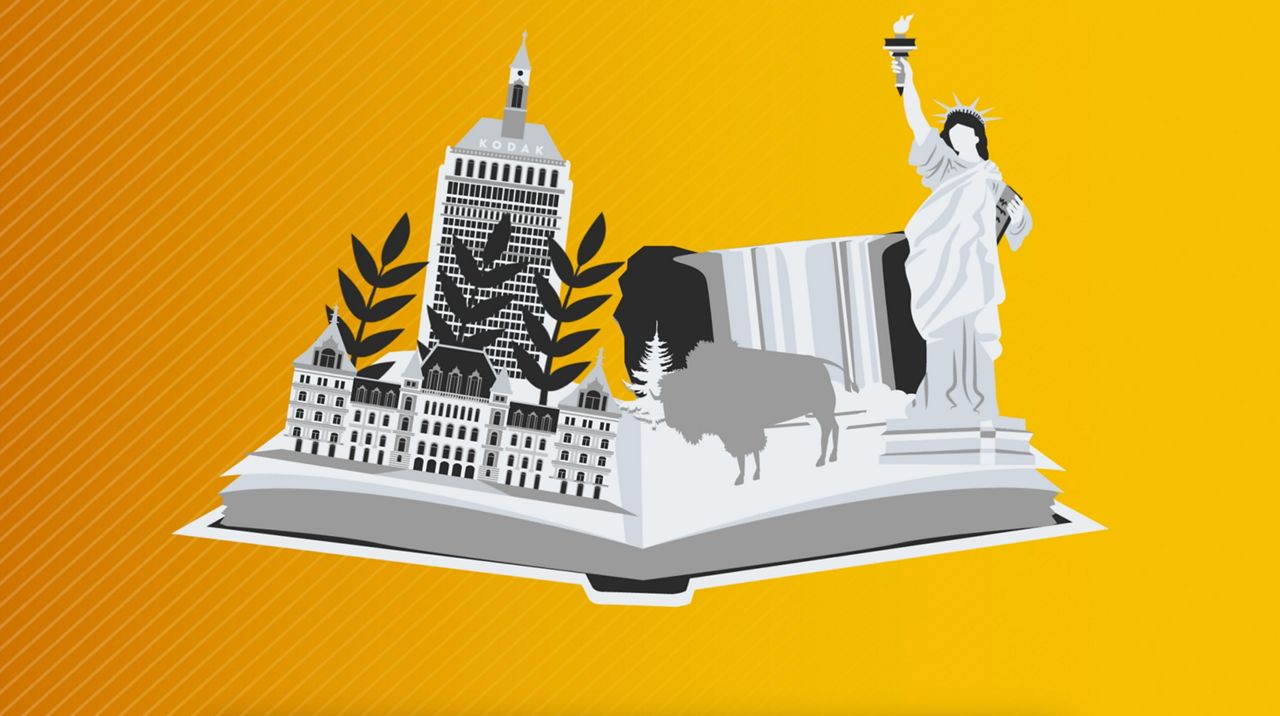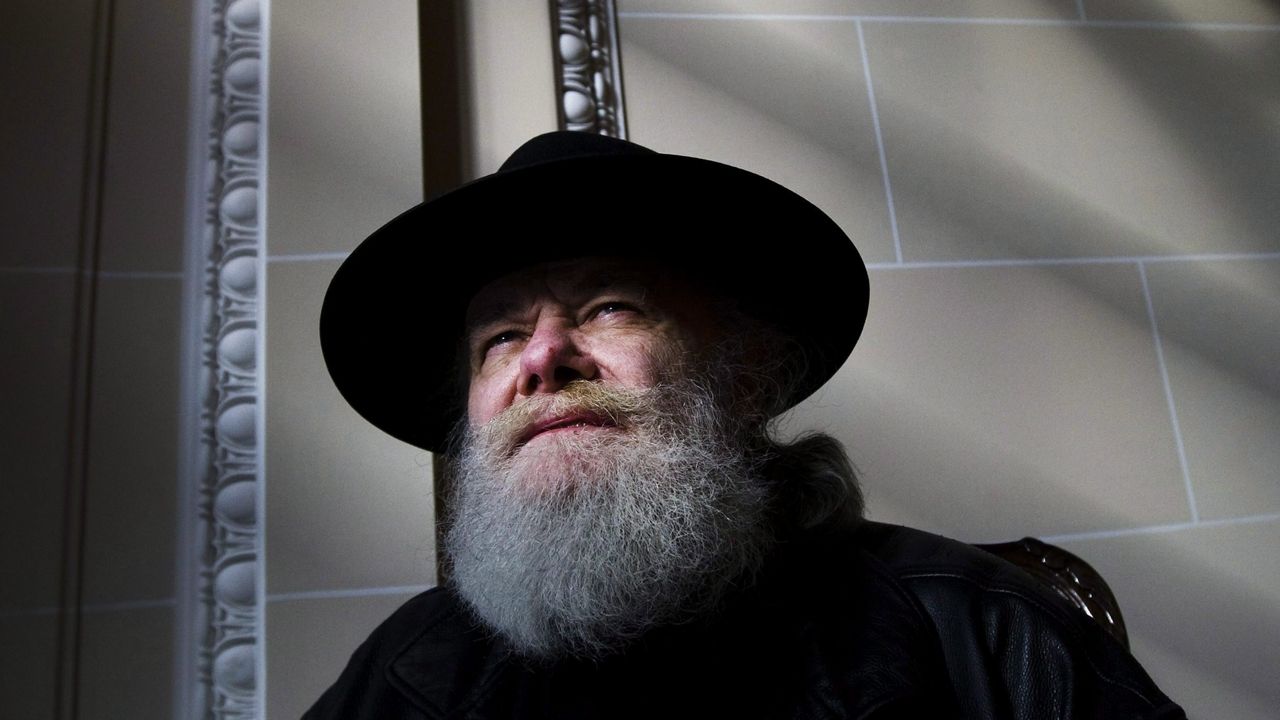Ramona and José sorted through their recent art pieces: Tapestries that can be used as table clothes, wall decor or covers.
Each embroidered cat, cow and sunflower is unique.
Ramona said she often draws inspiration from the scenes around the couple’s apartment in Kingston.
“Here’s the goose that was out in the water, eating some fish,” Ramona said, holding one of her latest works.
What You Need To Know
- Ramona and José were part of a steady wave of asylum seekers fleeing persecution the last four years in Nicaragua
- Members of the Kingston Interfaith Council and their congregations raised funds to sponsor Ramona and José
- The group met the couple at a non-governmental transitional facility near the border, and offered to help with their asylum applications to land them in Kingston
- Father Frank Alagna, founder of the UIDN and a member of the interfaith council, said he hopes the couple’s story changes attitudes among some less informed neighbors
The couple was part of a steady wave of asylum seekers fleeing persecution the last four years in Nicaragua.
Demonstrations against President Daniel Ortega’s plans to reduce Social Security pension payments in April 2018 led to months of violence as pro-government groups battled with protestors. At least 300 were killed.
Later, in 2018, the government declared protests illegal. Then came more crackdowns on free speech and media, and rebukes from the United Nations.
Human Rights Watch said it has interviewed 53 activists, journalists and lawyers who suffered human rights violations by pro-government groups in Nicaragua, including harassment and arbitrary detention.
“They wanted to kill me,” Ramona said in Spanish of the pro-government groups in her community, “for having participated … and supporting university students.”
Members of the Kingston Interfaith Council and their congregations raised funds to sponsor Ramona and José. The group met the couple at a non-governmental transitional facility near the border, and offered to help with their asylum applications to land them in Kingston.
The couple arrived in August. Volunteers with the Ulster Immigrant Defense Network have since been providing Ramona and José with food, clothing, rent and other necessities for their first year here.
Father Frank Alagna, founder of the UIDN and a member of the interfaith council, said he hopes the couple’s story changes attitudes among some less informed neighbors.
“This is what you do if you’re a human being and you’re a person of faith, and it doesn’t matter what faith you’re coming from,” he said during a Zoom interview Thursday. “I think the more people know and the more they’re made aware of reality, as opposed to what may be the slurs directed at immigrants, refugees and asylum seekers, that more people will be welcoming.”
Ramona and José said they are anxious to begin careers.
Ramona plans to buy and trade her crafts.
José hopes to work in an auto repair shop or a restaurant.
They expect to be cleared next year by the federal government to legally work while their asylum applications are considered.
Other Central American asylum seekers who arrived in Kingston two years ago are still waiting for their asylum applications to move forward.
In the meantime, Ramona and José are enjoying life without the constant threat of arrest or violence.
“There are concerts, activities and many new people come here to meet,” he said of his neighborhood. “We didn’t have this before.”
“We have nothing to complain about, Ramona added. “There’s so much to calm us down here.”









